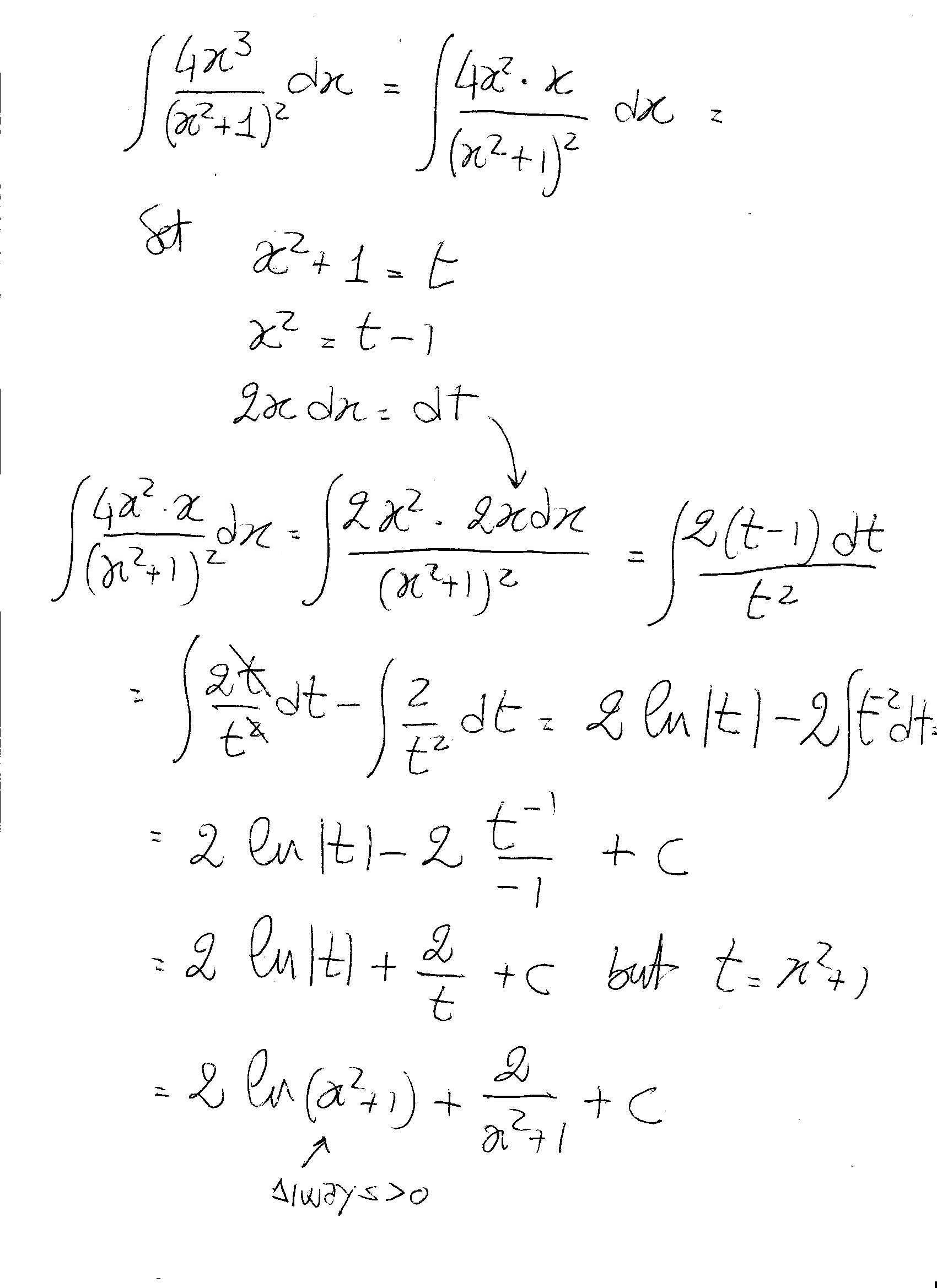Substitute #x = tant#, #dx= sec^2t#
#int (4x^3)/(x^2+1)^2dx = int (4tan^3tsec^2t)/(tan^2t+1)^2dt#
Use now the trigonometric identity:
#1+tan^2t = sec^2t#
#int (4x^3)/(x^2+1)^2dx = int (4tan^3tsec^2t)/sec^4tdt#
#int (4x^3)/(x^2+1)^2dx = int (4tan^3t)/sec^2tdt#
#int (4x^3)/(x^2+1)^2dx = int (4sin^3tcos^2)/cos^3tdt#
#int (4x^3)/(x^2+1)^2dx = int (4sin^3t)/costdt#
#int (4x^3)/(x^2+1)^2dx = 4int ((1-cos^2t)sint)/costdt#
#int (4x^3)/(x^2+1)^2dx = -4int (1/cost-cost) d(cost)#
#int (4x^3)/(x^2+1)^2dx = -4ln abs (cost) +2 cos^2t + C#
using the properties of logarithms:
#int (4x^3)/(x^2+1)^2dx = 2ln (1/ cos^2t) +2 cos^2t + C#
To undo the substitution note that:
#cos^2t = 1/sec^2t = 1/(1+tan^2t) = 1/(1+x^2)#
#int (4x^3)/(x^2+1)^2dx = 2ln (1+x^2) +2/(1+x^2)+C#



